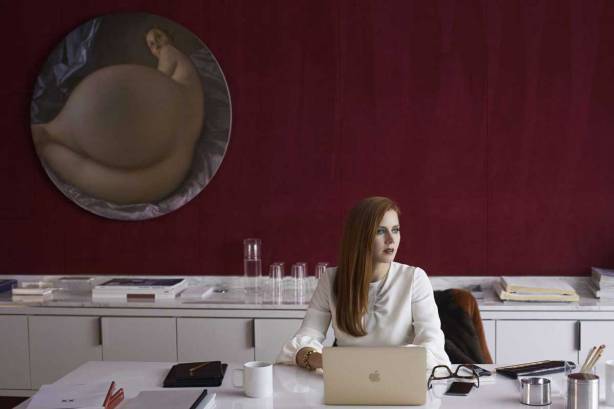
Image via http://www.straitstimes.com
Susan has found career success as an artist and has a grand house, a handsome husband and people to do her work for her. Her life, like her mausoleum of a house and philandering husband, has no emotional warmth. She is sent a manuscript of a novel by her first husband Edward (Jake Gyllenhaal) and, as she reads it, we are plunged into a reenactment of the story.
The story is about a man (also played by Gyllenhaal and so understood to represent him), his wife and teen daughter on a road trip across a remote part of rural America. The wife is not played by Adams but by Isla Fisher in a look-a-like role and so we understand that she is supposed to represent Susan (making Isla Fisher’s comments when she recently accepted her AACTA Trailblazer Award about “the lack of roles for ‘gingers’ because Amy Adams took them all” even more pertinent).
The story is a thriller with Edward confronting his masculine strength of character and courage as he tries to save his wife and child. Flashbacks to Edward and Susan’s past imply that her disappointment in his ambition and strength led to the premature end of their marriage and that somehow this story is addressing that loss. What the central message is is not clear; maybe don’t be like your mother or if you’re a career-driven woman you’ll end up unhappy or there is no humanity in the world, only selfishness.
The story-within-a-story gives the film some dramatic pace but the characters are two-dimensional and it has little logic or depth. Overall the female characters are sidelined, acting as victims to allow men to play out various archetypes of masculinity, as subjects of art to be objectified and ridiculed or as observers, passively awaiting their punishment. The ending is deliberately enigmatic and I have read other reviews, and an interview with the director, Tom Ford, that imply profound meaning but for me it was too obviously indicated (Susan stopping to look at the large black and white text painting in her office is an example) and left me feeling a bit yucky, a bit empty.
It feels like this film was made by a man who doesn’t like women very much or, perhaps, doesn’t really understand them.
Currently in cinemas.
Bechdel test – pass
1.5 stars